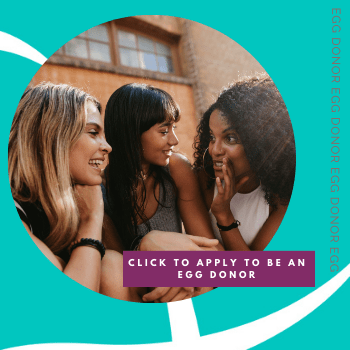
4 Egg Donation Myths Debunked
At PureOvum, we have created a next-gen agency that focuses on both the egg donor and the recipient of the donor eggs — ensuring that each party receives the care they deserve.
As a result, we have implemented resources to ensure that egg donors and intended parents are well-informed and well-prepared for egg donation.
PureOvum is here to correct the egg donation myths and misconceptions.
4 Egg Donation Myths Debunked
Donating Eggs Causes Infertility for the Egg Donor
There is no indication that the egg donation process negatively influences a woman’s fertility. As with any medical procedure, there are risks involved with donating eggs — a minimal possibility of developing ovarian hyperstimulation syndrome (OHSS). Infection, bleeding, and harm to internal organs are also possible, but rare.
Donating Eggs Diminishes a Woman’s Egg Supply
No, donating your eggs does not substantially reduce a woman’s egg supply. Approximately 10-15 eggs are extracted during each donation cycle — a woman is born with one to two million eggs in her ovaries and loses only a few hundred eggs through ovulation in her lifetime.
Any Woman Can Become an Egg Donor
Unfortunately, not all women who apply to become egg donors at PureOvum are eligible to become egg donors. PureOvum has a 3 percent acceptance rate of egg donor applicants. Our selection process is strict and extensive because the PureOvum egg donor program makes health and mental well-being a central focus when accepting women who are competent and ready for the egg donation process.
The following requirements should be considered when applying to become an egg donor:
- Between the ages of 20 and 30
- Healthy body weight, with normal BMI
- No family history of inheritable genetic diseases
- Higher education preferred (High School diploma or GED required)
- Willing to commit to the process for the next 6 months
- Manageable schedule for appointments and travel as needed
- Eagerness to complete medical and psychological screening
- Willingness to use injectable medications
Donating Eggs is a Painful Process
Prior to egg retrieval, egg donors must self-administer a series of hormone shots over two weeks, which can be painful. During the process of donating eggs, some women experience bloating, cramping, headaches, nausea, and breast tenderness because of the hormone medication. The egg retrieval procedure itself is painless; donors are sedated for the procedure.
The PureOvum Egg Donor Program gives you the tools you need to navigate your way to becoming an egg donor. Are you comfortable with being uncomfortable? Are you ready to commit? Learn more about the leading donor egg program in California.






